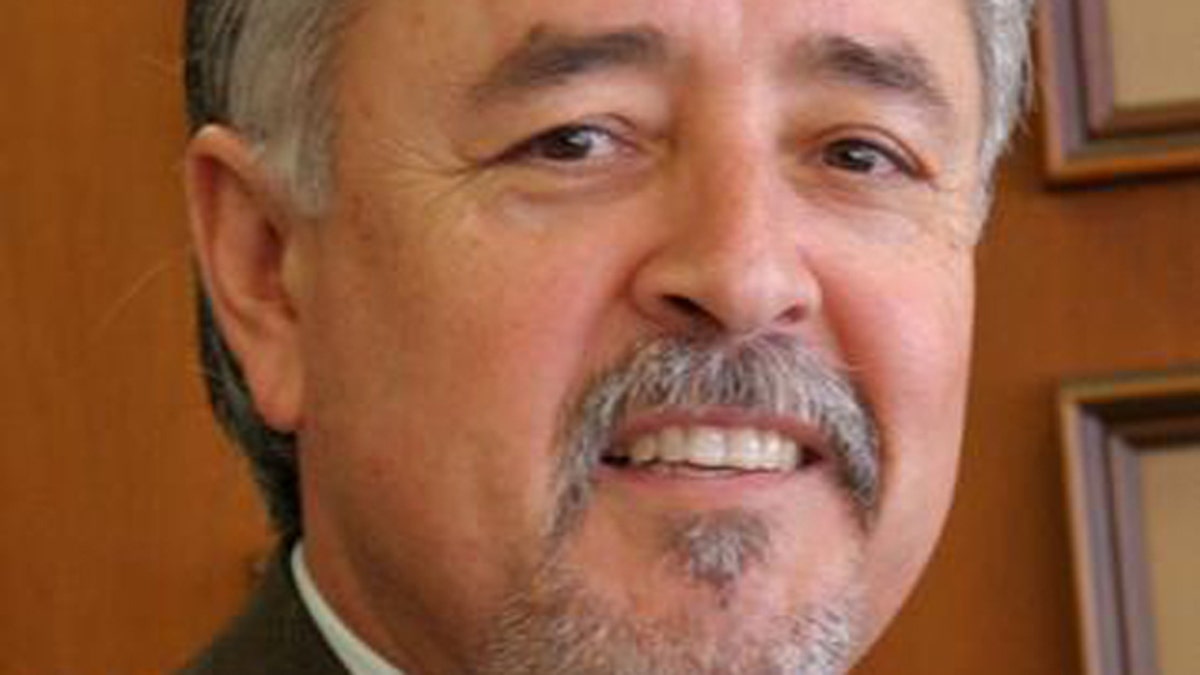
Los Angeles County Superior Court Judge Peter Espinoza (AP)
The Los Angeles County Superior Court judge who blocked enforcement of a major provision of the state's Jessica's Law last week — possibly paving the way for sex offenders to live near schools or parks — is well known to Californians.
He's the same judge who used a cable documentary to keep alive the possibility that filmmaker Roman Polanski, who pleaded guilty to unlawful sex with a minor, may have been a victim of judicial misconduct. And he's the same judge who ordered the release of a convicted killer after Gov. Arnold Schwarzenegger vetoed his parole four times.
Judge Peter Espinoza last week ruled in favor of a group of sex offenders who claimed that a provision of Jessica's Law violated their constitutional rights because it created a lack of housing, forcing them to choose between breaking the law and being thrown back in jail or obeying the law and becoming homeless.
The judge’s ruling essentially blocked Los Angeles County’s ability to enforce a provision of the 2006 law that requires sex offenders to remain 2,000 feet away from schools and public parks. The judge noted in his 10-page decision that more than 600 similar lawsuits have been filed against the state of California, meaning Jessica's Law could be jeopardized throughout the state if his preliminary ruling stands.
In his decision, Espinoza said that if sex offenders are unable to find housing, then the residential provision of the state's Jessica's Law is unconstitutional.
The ruling was blasted by county officials, including Los Angeles County Supervisor Michael Antonovich, who called it “a stupid decision by a judge who’s circumventing the vote of the people.”
The California Department of Corrections and Rehabilitation plans to appeal the ruling, said the agency’s deputy press secretary, Terry Thorton. In the meantime, she said, a memo has been issued directing parole agents to abide by the ruling.
But there are other laws predating Jessica’s Law that prohibit high-risk sex offenders from residing within a half-mile of a school, "so we can still impose that law,” Thorton said. “Parole agents can still impose residency restrictions if supported by a parolee’s criminal history.”
Former LA District Attorney Robert Philibosian called Espinoza’s ruling unconstitutional.
“He is just wrong,” he said. “This is a policing problem, not a constitutional problem.”
But Laurie Levenson, David W. Burcham Chair of Ethical Advocacy at Loyola Law School and a former LA County prosecutor, suggested that the ruling was valid.
"I don’t know that he had much choice," she said. "We are driving these people onto the street, to homelessness, and we can’t keep track of them out there.”
Levenson described Espinoza as someone who isn't afraid to be the first to step in and make a controversial decision.
“He’s an interesting guy — he's going to do what he wants to do.... He calls 'em as he sees 'em," she said.
A public affairs officer with Los Angeles Superior Court said Espinoza was unable to comment, citing policy forbidding judges from commenting on active cases.
Espinoza has held high-profile positions in Los Angeles Superior Court since 1994, and some of his rulings have generated considerable controversy.
Last year, overruling four consecutive vetoes by the governor, he granted parole to a man convicted of the grisly 1992 slaying of his 16-year-old classmate.
In the Polanski case, he cited his viewing of an HBO documentary as reason to leave open the possibility of a ruling of judicial misconduct involving the prior judge assigned to the case.
Espinoza’s plans for his own future are similarly controversial.
Numerous officials say the judge has his eye on becoming LA County public defender, even though he is legally unqualified for the job because candidates are required to be practicing attorneys and members of the bar — which, as a judge, Espinoza is not.
He is trying to change the state law requirement in order to be deemed eligible, and the state legislature is looking at the proposal.
“He’s controversial character because of the position he’s in,” Levenson said.
“He’s willing to take the bull by the horns; he’s somewhat fearless in that regard. He’s going to do what he’s going to do.”
What he should do, Supervisor Antonovich says, is go away.
“No person with this type of ruling should be considered for any type of position except retirement,” he said.








































